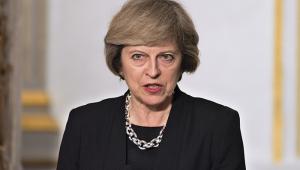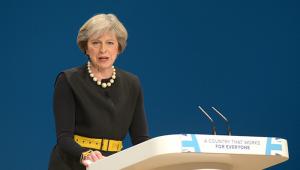In a speech in Florence today the prime minister said the UK would operate under “current terms” during the two-year period, which would effectively include the continuation of freedom of movement.
This transitional phase would be to allow people and businesses in the UK and EU to “adjust to the new arrangements in a smooth and orderly way”, she said.
“A period of implementation would be in our mutual interest,” the prime minister stated.
“Clearly people, businesses and public services should only have to plan for one set of changes in the relationship between the UK and the EU.”
She added: “During the implementation period, people will continue to be able to come and live and work in the UK; but there will be a registration system – an essential preparation for the new regime.”
May said this arrangement would be a “strictly time-limited period” and would work within the existing structure of EU rules and regulations.
She told EU people living in the UK that she made a “real” guarantee their rights would be protected under UK law post-Brexit.
“We want you to stay, we value you; and we thank you for your contribution to our national life – and it has been, and remains, one of my first goals in this negotiation to ensure that you can carry on living your lives as before,” May said.
But she confirmed that the UK would no longer be a member of the single market or customs union once Brexit was complete.
She also explained Britain would continue paying its “fair share” for science, education, culture and security projects after March 2019 as these were “greatly to the UK and the EU’s joint advantage”.
The British people had chosen “domestic democratic control” over “pooling” political control in the EU, she added.
This control would “[strengthen] the role of the UK Parliament and the devolved Scottish Parliament, Welsh and Northern Ireland Assemblies in deciding our laws”.
May reiterated she was optimistic about the future of the UK and the EU and noted both had common values. She also said they faced similar challenges, such as the weakening growth of global trade.
She argued that the UK and EU were in an “unprecedented position” to forge a new economic partnership with Europe which was not like the “unimaginative” European Economic Area or Canadian trade deal models.
May said there was “no need” to impose tariffs and the UK would do everything to avoid friction at its borders.
She stated that it could not be up to either the European Court of Justice or UK courts to act as a mechanism to resolve disputes.
May offered no detail on this but said she was confident an “appropriate” mechanism for resolving disputes could be found.











